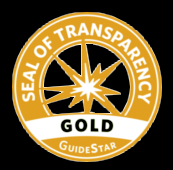Equine Population Numbers
I often research the internet for equine population numbers, hoping to find new figures to indicate how many horses there are in Georgia. I haven’t been able to find anything specific to our state, but I have uncovered some other interesting facts in the process. Keep in mind that the estimated numbers are now five years old.
According to a 2006 report, there are 58,372,106 horses in the world. The United States, by far, reports the highest total number of horses with an approximate 9,500,000. Yes, that’s 9.5 Million! This data provided by FAOSTAT is similar to the American Horse Council’s independent study, which reported a US horse population of 9,223,000 in 2005. This indicates that U.S. equine numbers rose by nearly 300,000 in just over a year.
In the US, Texas reports the largest horse population, with an estimated 978,822. Other leading states include: California (698,345); Florida (500,124); Oklahoma (326,134); Kentucky (320,173); Ohio (306,898); and Missouri (281,255). Do you realize that Florida has more horses than the entire country of Germany? That is mind-boggling to me. Why am I telling you all of this? I am trying to help everyone comprehend how serious our horse problem is, and I don’t mean us, as Georgians. I mean “us” as in Americans. I have spoken to people in other states who share our concerns about neglectful new horse owners who, for the first time can now own a horse because of the current low price of horses. Combined with ignorance concerning the cost of maintenance and proper care for a horse, it is a recipe for equine neglect.
I recently received a call from a newspaper reporter from Ft. Wayne, Indiana and he wanted to talk to me about GERL’s framework and partnership with the Department of Agriculture. He told me that Indiana has serious horse issues and they are totally overwhelmed with the number of unwanted horses. Two days later I received a call from a retired law enforcement officer in Tennessee who got my name and number from a mutual friend. He wanted to pick my brain to find out what we’re doing about our horse problems. He went on to tell me about how difficult it is to get past the “good ole boy” network to obtain help for starved horses. That same week I received a call from a television reporter down in Savannah who was doing a story on horse rescues and the plight of horses today. He told me that the City of Savannah was finally going to change some ordinances with regard to the welfare of the carriage horses in downtown Savannah. Hallelujah!
This flurry of activity made me realize that we have it better than most states. Georgia has a growingly effective program that has been in place for eighteen years. The program includes laws which protect equine, knowledgeable GDA Equine Inspectors; several impound barns (including recent partnerships with several prison facilities), where seized equine may be taken for rehabilitation and re-homing. We also enjoy an excellent working relationship with our University of Georgia Vet. School. All of this, not to mention the many other horse rescue groups and non-profit equine organizations in Georgia. What other state has all of that?
I recently wrote a “Get Well Plan” which was provided to the Georgia Department of Agriculture and our Agriculture Commissioner. My plan contained five components:
- Slow down reproduction (Sponsorship of Stallion
Castration Clinics) - Prosecute and Fine Equine Abusers
- Disbursement/Disposal of impounded equine (placing
them in good homes) - Financial (How the present impound program might
pay for itself)
Education, education, education!
Each component contains detailed information. It is a plan that is flexible, in that each piece of the plan operates independently of the others. However, without all of the components, obtaining the goal will remain out of reach.
“The Horse” magazine did a story last month concerning the unwanted horse problem. I noticed that many of the components of my Plan were also listed in their article. This is not rocket science. The northeast has already been doing many of these things for over twenty years, which is largely responsible for their having a much better control of their dog and cat over abundance. I see no difference for the possibility that the same strategies will apply to the over population of horses.
I have several friends who are involved in a specific canine breed rescue. They will transport a dog two or three hours north to meet another volunteer who will drive it another three hours to introduce the animal to acceptable parties willing to give the animal a good home. I was told that this chain of events is more the rule than the exception.
